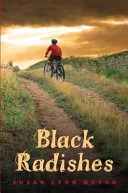
It is March of 1940. The French believe that their army can protect them from Nazi Germany. But is Paris a safe place for Jews? Gustavers”s parents donrs”t think so. Forced to leave behind his best friend, the mischievous Marcel, and his cousin Jean-Paul, Gustave moves with his mother and father to Saint-Georges, a small village in the countryside. During April and May, Nazi Germany invades one country after another. In June, the French army is defeated, and Paris is occupied. Saint-Georges is still part of the free zone, but the situation there is becoming increasingly precarious. Then Gustave meets Nicole, a Catholic girl who works for the French Resistance. Along with her father, Nicole tries to find a way to smuggle Jean-Paul, Marcel, and their families into Free France so that they can all escape to America. It is Gustave, however, who comes up with a plan that just might work. But going into Occupied France is a risky thing to do when you are Jewish. Inspired by her fatherrs”s experiences as a Jewish child living in France during World War II, Susan Lynn Meyer tells the story of a familyrs”s day-to-day struggles in a country that may not be able to keep its promise of “Liberty, Equality, and Fraternity.”
See the review at WOW Review, Volume 4, Issue 1
- ISBN: 9780385738811
- Author: Meyer, Susan
- Published: 2010 , Random House Children's Books
- Themes: Holocaust, resistance movement, World War II
- Descriptors: Europe, France, Germany, Historical Fiction, Intermediate (ages 9-14)
- No. of pages: 240

In Black Radishes, eleven-year-old Gustave comes to realize that the changes in France under Hitler and the Vichy government were inevitable. The changes are unbelievable much of the time, but inevitable once a people decide to turn upon themselves. This is a gentle book about a young boy who learns to fear his government while at the same time learning to stand up for his faith, his family, and his country. As a member of a Jewish family that moved to France’s unoccupied zone just in time, Gustave learns that being Jewish is problematic for some of the townspeople. He learns to accept this change in his concept of the world. He learns that family decisions can cause danger to others, but learns to accept this reality as part of growing up during a time when even simple decisions are not so easy. He learns that love of country may mean having to change the way you live in it, especially if the very core of the country—Liberty! Equality! Brotherhood!—is challenged by internal and external forces.
This novel is a great accompaniment to A Faraway Island and to Tamar. Black Radishes allows readers to understand the experiences of European Jews even in “safe” places, and similar to Tamar, this book gives younger readers a sense of the Underground Movement. This book moves quickly, and even though I knew things would work out for Gustave and his family, it still reminded me, through the story of Gustave’s friend Marcel, that not everyone survived. Black Radishes—the bribe to German soldiers between the occupied and unoccupied zones in France—is another poignant book reminding us that while change is inevitable, sometimes, just sometimes it would be nice if children didn’t have to be in jeopardy during the process. Or better yet, that some changes should just not occur.